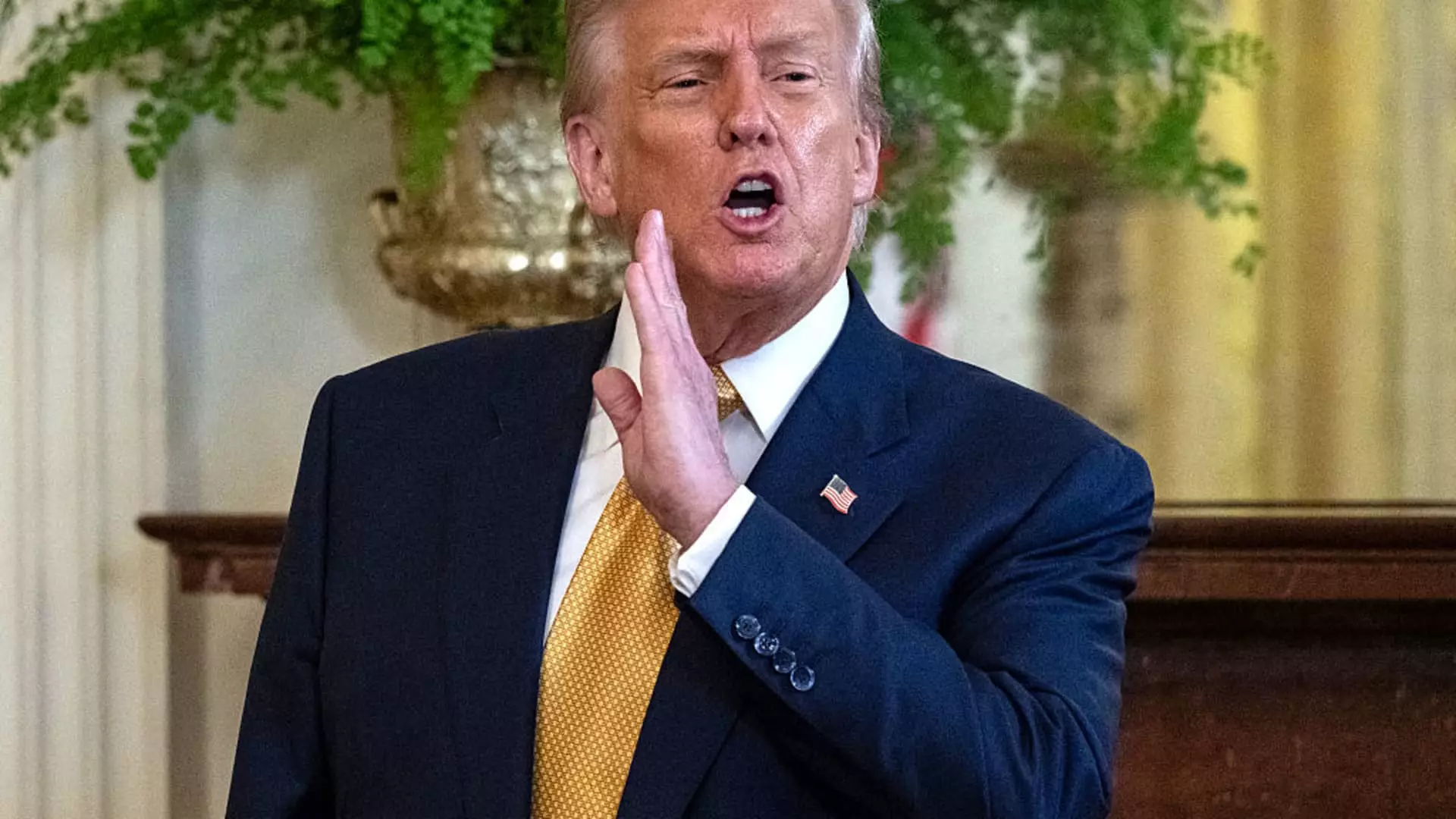The recent shift by the U.S. administration, led by Donald Trump, toward expansive trade negotiations with the European Union reveals a pattern of strategic posturing rather than genuine cooperation. The announcement of a framework agreement with Japan, followed by vague mentions of EU talks, masks the underlying reality: the United States remains committed to protectionist tactics that threaten long-term global economic stability. It is tempting to see these developments as steps toward reciprocity and mutual benefit, but closer inspection reveals a calculated strategy rooted in unilateral flexing rather than collaborative problem-solving. The Trump administration’s emphasis on short-term deadlines and tariff threats signals an inclination to wield economic leverage as a bargaining tool, risking retaliatory measures that could spiral into widespread disruptions.
Euro-Unease Amid Uncertain U.S. Intentions
European policymakers are cautiously navigating the uncertainty created by these negotiations. The EU’s focus on securing a negotiated outcome, as articulated by a European Commission spokesperson, sounds diplomatically prudent but also underscores the precariousness of the situation. The EU’s recent history demonstrates a resilience rooted in multilateralism and rules-based trade, but these principles are under threat when the U.S. reliance on tariffs as negotiation tactics intensifies. The looming 30% tariffs on U.S.-bound imports from the EU, set to take effect imminently, threaten to erode trust and incite retaliatory measures. Brussels’s preparations for additional retaliations while holding off on immediate tariffs reveal a strategic patience that could eventually give way to economic fragmentation if diplomacy remains hamstrung by Trump’s protectionist approach.
The Promise and Peril of the U.S.-Japan Deal
The agreement with Japan, while portrayed as a positive milestone, exposes the fragile foundations of U.S. trade diplomacy. Experts note that the reductions in auto tariffs, especially the move from 25% to 15%, could be a double-edged sword. While the auto industry—among Europe’s largest export sectors—stands to benefit, the absence of sectoral exemptions for key EU interests raises questions about fairness and long-term sustainability. Media narratives celebrating the deal may overlook the fact that these tariff reductions are mainly symbolic unless backed by broader concessions or enforceable sectoral protections. Moreover, Japan’s auto sector, a major global exporter, advantages from unfettered access, which could complicate future negotiations with the EU and South Korea, further fragmenting the global auto supply chain.
Market Reactions Reflect Underlying Anxiety
Financial markets, especially in Europe, responded positively to the news of the U.S.-Japan pact, with sectors like automotive experiencing notable gains. However, this buoyancy reflects underlying volatility and uncertainty in trade relations. Market optimism can quickly fade when negotiations stumble or when tariffs and retaliations escalate. The EU’s stock index rising modestly underscores a fragile confidence—one rooted more in hope than in certitude. It is vital that investors recognize these ripples, as they encapsulate the broader anxiety about the future trajectory of international trade. The current market behavior illustrates how economic optimism often blinds us to the deepening risks of escalating trade conflicts.
Strategic Diplomacy in a Turbulent Global Economy
Meanwhile, European leaders like Ursula von der Leyen and Antonio Costa are maneuvering through a different terrain—focused on Asia and the complex U.S.-China relationship. Their diplomatic priorities expose a European Union increasingly entangled in global power plays driven by American protectionism and Chinese assertiveness. The EU’s efforts to maintain open channels with Japan and China seem increasingly defensive, responding to the U.S.’s unilateral actions rather than shaping them. This situation questions whether Europe’s reliance on multilateral diplomacy can withstand the upheaval caused by the Trump administration’s transactional approach. The fact that EU officials are desperately engaging in diplomacy with China amidst U.S.-EU tensions indicates a strategic dilemma: balancing economic interests with the need to uphold global governance norms.
Final Reflection: The Cost of Shortsighted Trade Tactics
If there is one lingering truth from these developments, it is that protectionism under the guise of strategic negotiation is a shortsighted policy with destructive potential. It demands a skeptical lens—protectionist moves often serve domestic political narratives more than genuine economic interests. The danger lies in the ripple effects—a fractured international order, disrupted supply chains, and a race to the bottom in global standards. Europe’s cautious stance and its efforts to diversify diplomatic engagements are justified responses, but they also reveal its vulnerability in a U.S.-centered trade landscape that seems increasingly unpredictable. Instead of a coordinated strategy that champions fairness and sustainability, current trade maneuvers seem driven by short-term political expediency—an approach that ultimately risks sacrificing many of the democratic values and economic stability Europe seeks to uphold.

Leave a Reply